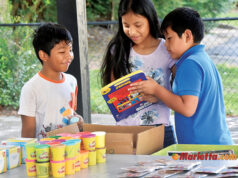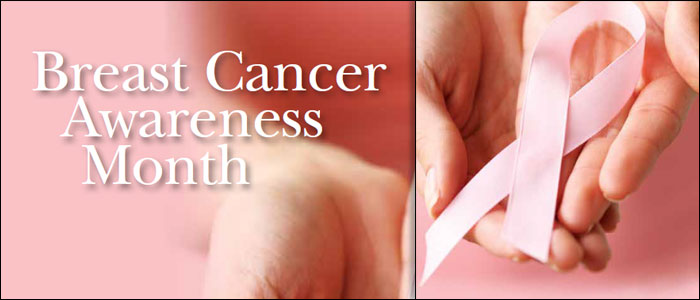Cobb County is rich with organizations, professionals and law enforcement whose goals are ending domestic violence and supporting the victims of these heinous crimes locally and at the state level.
In fact, Cobb resident Holly Tuchman, CEO and executive director of YWCA of Northwest Georgia that delivers programs and services that increase the awareness and reduce the occurrence of domestic violence and sexual assault in our communities, was recently named chair of the Georgia Commission on Family Violence (GCFV). The state committee is tasked with multiple duties, including studying and evaluating the needs and services related to family violence in Georgia, monitoring the effectiveness of family violence laws and developing models for community task forces on family violence. “I am honored to be part of the commission and have a small role in impacting how this state addresses this very important issue as well as have a part in advocating for very important legislation, such as HB911 which was passed last year and signed by [Gov. Nathan Deal] to add language to the existing aggravated assault statute to make strangulation a felony offense,” Tuchman says.
She has worked with victims of domestic violence since getting involved in the YWCA in the late 1980s. “I volunteered for the rape crisis hotline at the time—one of my first volunteer experiences in Marietta,” Tuchman recalls. “Then, I was honored as a Academy of Women Leader and served on the Tribute to Women Committee when I was back in the for-profit world. In 2007, the executive director decided to retire and I was approached about taking the position and the rest is history, as they say.”
Tuchman adds that ending domestic violence cannot be achieved by one system alone. “Family Violence Task Forces are an important component to addressing family violence at a local level,” she says. “GCFV provides technical assistance and support to the 38 Family Violence Task Forces across Georgia.” It is made up of victim advocates, law enforcement, the local Department of Family and Children Services, judges, prosecutors and many other systems responding to family violence victims and offenders. Recently, the Cobb County Family Violence Task Force was awarded “Task Force of the Year” by the GCFV.
Domestic Violence Unit
In his continued efforts to support domestic violence victims, Cobb District Attorney Vic Reynolds is working to create a unit within his office that is specially designed to handle domestic violence cases. “It is important to have a specialized unit handling these cases because of the nature of domestic crimes,” Reynolds says. “Frequently, the victims of these incidents are often reluctant witnesses, there are usually children involved, and the family dynamics separate these prosecutions from any other crimes.”
The unit would consist of a prosecutor, investigator, victim-witness advocate and support staff. Reynolds says, “All cases would be assigned to the unit, and that is the only type case the unit would handle. The unit would be comparable to our existing special units, such as Narcotics, White Collar and Crimes against Children.” Since being elected as DA, Reynolds’ office also now tracks the number of victims they work with—2,992 in Fiscal Year 2012; 1,127 in 2013; and 1,481 in 2014. The office has a victim-witness advocate assigned to the Cobb County Police Department who works with these victims at the initial onset of the case as well.
In addition to his role with the DA’s office, Reynolds and his wife, Holly, will chair the annual YWCA 100+ Women Against Domestic Violence Fundraiser set for Feb. 7 at Jim R. Miller Park. The “Boots, Blue Jeans & Country Music” event kicks off at 6 p.m. and raises money for the battered women’s shelter. Learn more at ywca.org. The couple is also involved with fundraising events for Marietta-based SafePath Children’s Advocacy Center.
Ending Child Abuse
SafePath, which has existed since 1996, is a nonprofit that offers a comprehensive, professional and child-friendly approach to the intervention and investigation of alleged child abuse by bringing law enforcement, the DA’s office, DFCS, mental health and healthcare professionals and other agencies together to help solve a child abuse case. The Marietta location provides a neutral and safe environment for children and families. In 2013, SafePath served more than 750 children and provided services for their caregivers and siblings. Of the over 750 children SafePath served, almost 200 of those children were involved in family or domestic violence.
“Some people may think family and domestic violence is not prevalent, just because it’s not happening in their home or in their neighborhood,” says Jinger Robins, executive director at SafePath. “If you are concerned that a child is being abused, maltreated or neglected, call the police or local child protective services. Suspicions of child abuse, including family violence, should be reported.”
In cases where SafePath is called in to help, professionals with the organization will conduct a forensic interview with a child at their kid-friendly location and meet with caregivers to help them find necessary resources, including safe housing or domestic violence support groups, all at no cost. Robins says SafePath is able to do this because of the financial support they receive from generous donors in the community, as well as competing for federal and local grants. “Monetary gifts truly help to carryout and fulfill SafePath’s mission,” she adds.
To enhance the mission of SafePath, they utilize the expertise, talents, resources and charitable acts of volunteers. If you are interested, please contact their volunteer coordinator at volunteer@safepath.org.
Business Community Taking a Stand
Kim Gresh, president of S.A. White Oil Company, Inc., in Marietta and one of many local professionals advocating for domestic violence victims in Cobb, believes that if she and others in the community didn’t get involved, no one would. “Why wouldn’t I want to get involved, if I could help the victims of domestic violence and sexual assault?” she asks. “As a business leader, I know that domestic and sexual assault have an effect on everyone in our community. The more people who get involved can only help us reach our goal to put an end to domestic violence and sexual assault.”
She recommends business leaders reach out to groups like the YWCA or SafePath and how they can get involved. Gresh has personally been associated with the YWCA for six years, specifically helping the organization transition from what it had historically been known for, to focusing solely on domestic violence. She has served as the capital campaign manager for the past five years, and this year, she is board chair. “After talking with [Tuchman] and realizing the focus of the YWCA was very different from what it was when I was young, I understood how important the struggle against domestic violence was and felt that I could do something to help,” Gresh adds. She also serves as a member of the WellStar Board of Trustees, which partners with the YWCA to provide services for victims of sexual assault.
7 Common Abusive Tactics
- physical violence
- sexual violence
- isolation
- economic abuse
- emotional abuse
- intimidation
- reproductive coercion
- stalking
————
Need help or know someone who does?
- YWCA 24-hour Crisis Line (770) 427-3390
- 24-7 Statewide Domestic Violence Hotline (800) 33-HAVEN (42836)
- Child Protective Services (855) GA-CHILD (422-4453)
- National Domestic Violence Hotline (800) 799-SAFE (7233)
———————
Domestic Violence in Georgia (2013)
- 118 deaths as a result of domestic violence
- 58,955 crisis calls made to domestic violence agencies
- 7,807 victims and children who were provided refuge in Georgia domestic violence shelters
——————
Myths and Facts About Domestic Violence
MYTH: Victims have done something to cause the abuse.
FACT: Abusers choose their actions. Abuse is never the fault of the victim.
MYTH: Domestic violence is rare.
FACT: Domestic violence affects one out of four women at some point during her lifetime. Men can also be victims of domestic violence, but women make up about 97 percent of domestic violence survivors. Domestic violence happens equally in heterosexual and homosexual relationships.
MYTH: Domestic violence is not a serious problem in the U.S. or in Georgia.
FACT: Battering is the single largest cause of injury to women in the United States—over mugging, automobile accidents and rape, combined.
MYTH: Victims of abuse are crazy if they choose to stay in an abusive relationship.
FACT: Many survivors do not exhibit behaviors that, to those of us outside the intimate relationship, may seem unusual or even bizarre. It is important to remember that, as an outsider to the abusive relationship, we are not living with the daily threat and fear of abuse or death. What may appear to be bizarre behaviors are often survival strategies women use to keep themselves safe.
MYTH: Middle-class women do not get battered as frequently or as violently as poor women.
FACT: Domestic violence occurs in all socio-economic groups. In fact, middle-class women often face barriers to get public assistance when they decide to leave because of their family’s above-the-poverty-line financial status.
MYTH: Drinking and/or drug abuse cause battering.
FACT: There seems to be a correlation between alcohol and battering. Although alcohol abuse may increase the likelihood of violent behavior, it does not cause or excuse it.
MYTH: Domestic violence only affects the adults in the household.
FACT: According to a recent American Bar Association report, experts estimate that 3.3 to 10 million children witness domestic violence annually.
Source: Georgia Coalition Against Domestic Violence, gcadv.org

















